The world has witnessed a series of inventions since the discovery of climate change in the 19th century.
More studies and reports from the University of Oxford and other renowned scholars’ reveals that cutting on the dairy and meat products can significantly reduce the individual amount of carbon footprint on the environment.
If everyone transitioned to veganism, the world would witness a 75% reduction of global greenhouse emissions.
The reductions in the emission of dangerous gases in the atmosphere would ease the pressure on the environment and the planet leading to a significant reduction of natural and human-made catastrophes.
In this respect, this article presents 8 environmental benefits of being a vegan. The ideas and arguments detailed below will help transform any mindset to embrace and value the simple vegan diet for a sustainable future.
If you’d like to see a graphical breakdown of the environmental benefits, we got you covered:

Share this Image On Your Site
Contents
Vegan Diet and Global Hunger
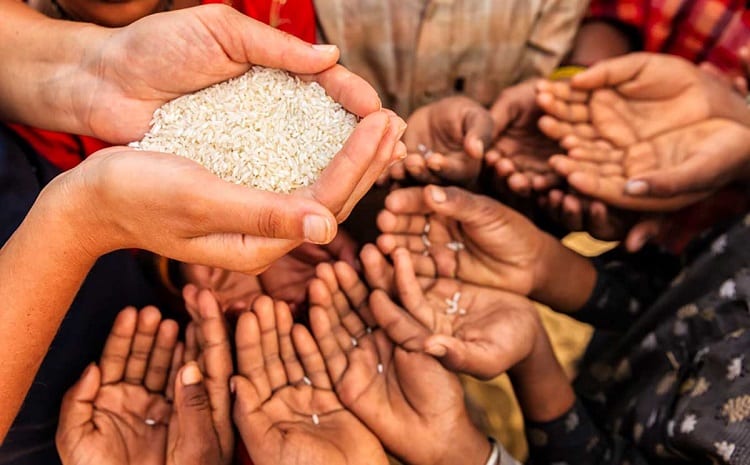
Do you know that if everyone transitioned to a vegan diet, the world would witness less hunger than the current reported?
According to a UN 2019 report, 690 million global people are undernourished. These are quite devastating statistics. Imagine about 9% of the worldwide population is hungry.
A further breakdown of the statistics shows that 9% of the global populations have no growth development inputs. In fact, a significant of these hungry populations reside in third-world countries where people rely on cattle farming.
Individuals conserve acres of land for animals to spend days migrating from one location to another in search of pasture and water.
In contrast, 83% of American farmland is for rearing and manufacturing of animal products. Meaning a whole 70% of land for tilling grains is set aside for the livestock.
So if all these land and activities were dedicated to growing healthy fruits and vegetables, the world could witness massive productions to feed the hungry and rejuvenate the universe.
However, a vegan diet is crucial in stopping hunger by refocusing finances and resources on developing human activities. It’s a foolproof method of healing the plant by offering healthy foods to hungry and developing nations. Thus, a vegan is an individual rooted in protecting the environment.
Going Vegan and Conserving Water
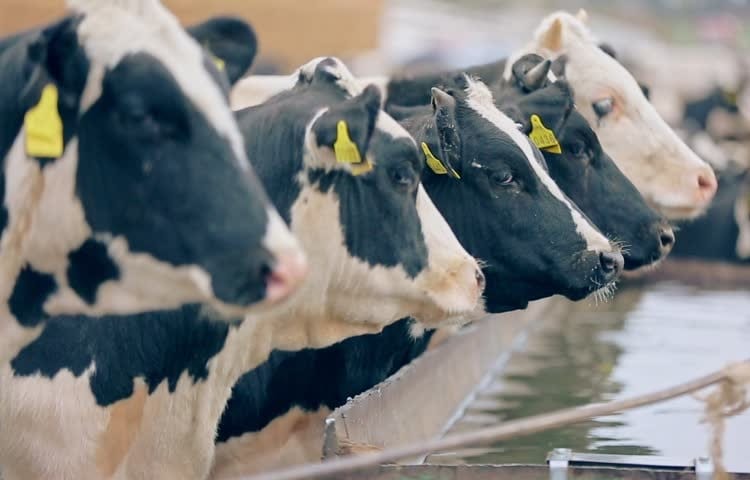
Water is life, and 71% of the world is water. 96.5 percent of the water on the earth’s surface comes from the oceans, and only 2.5% of the total water available on earth is safe for human consumption.
Further, within 2.5% of the freshwater, only 1% is accessible to humans. Others are trapped in the snowfields and glaciers. On a planet of over 6.8 billion people, only 0.007% of water is available to consume for humans and animals.
The availability of consumable water is reducing significantly due to scarce resources, engineering, and climate change.
A report published in the World Resources Institute in 2019 shows that 17 countries in the world lack sufficient water for consumption and household matters. In fact, ¼ of the global population suffers from water scarcity.
The water scarcity issue is continuously increasing as humans spare acres of land for irrigation activities, municipalities, and industries. A part of experiencing a drought frequently, these water-deprived nations engage in activities that over-consume water.
According to the United Nations Environmental Programme, the world expects a 50% increase in demand for freshwater by 2025. Animals are huge consumers of the blue water available in the atmosphere.
It’s used to fuel agricultural activities to produce animal feeds and involve direct drinking and the amount wasted in factories and slaughterhouses engaging in animal by-products.
Water consumption goes beyond spraying animals in arid areas to improve performance, not forgetting the water needed in growing animal crops and pastures. In a nutshell, animals’ activities are significant consumers of freshwater available for humans.
That’s why if humans transitioned to vegans, it could lead to significant conservation of water.
Remember, some of the fruits and vegetables are a rich source of water in the body. Watermelon, strawberries, and peaches have over 80% water content that plays a rehydrating effect in the human body.
Fruits and vegetables are essential in conserving water and are excellent sources of minerals and vitamins.
Vegan Diet and Energy Consumption
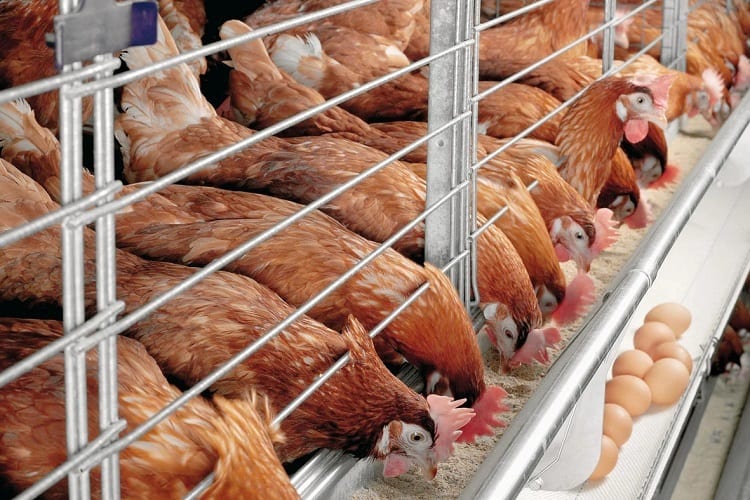
The process of rearing livestock, slaughtering, and producing by-products consumes much energy. So the continuance engagement in livestock production activities is a potential threat to the environment.
Remember, according to Our World Data, as the world approach 2030, the demand for energy increases to support technological advancement and industrialization.
Despite the increasing energy demand, humans are yet to manufacture clean energy.
A report by the Our World Data reckons that 80% of the total energy consumed in the world still comes from fossils. More insights from the Our World Data report points out that billions of world populations still lack access to clean energy.
Thus, most rare livestock populations continue to depend on fossils fuel as a significant energy source. Also, dairy production and sustenance processes require energy, which mostly comes from fossils and electricity.
Major energy consumers are essential processes such as heating water for dairy animals, cooling milk, and vacuum pumps.
For instance, in 2018, the United States’ total energy from fossils accounted for 65% and came from petroleum, natural gas, and coal. The combustion of such fossils emits CO2, which is significant in creating the greenhouse effect.
The SO2 is responsible for causing acid rain that threatens the life of animals and plants. The Nox acts on depleting the ozone layer, which consequently damages the lungs.
The information above is a rugged peak of relying on animal meat and dairy cause’s pressure on energy sources. The world demands much energy to keep the animals alive and safe, making the environment hazardous for humans.
Thus, if all individuals transitioned to a vegan diet, energy sources’ pressure is significantly reduced. Also, it can reduce the negative implications of fossils gases in the atmosphere.
Vegan Diet and the Preservation of Valuable Species
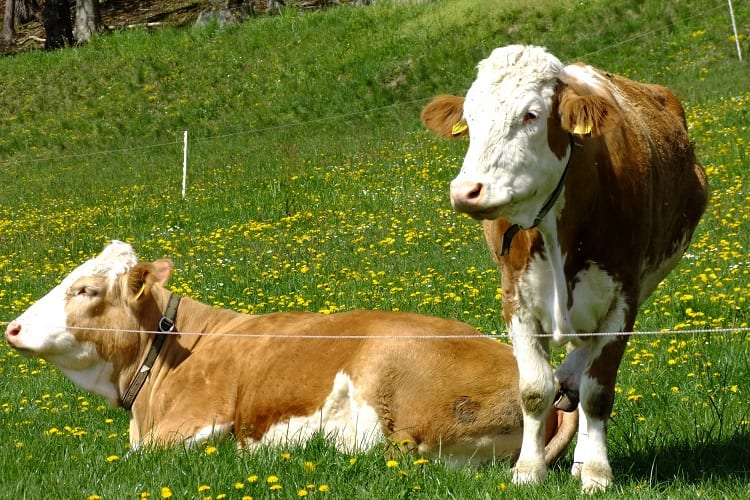
Another harmful human activity on the planet earth resonates with eating animals. Millions of valuable species with the capacity to regulate the ecosystem now face extinction.
The species lack homes and ample habitant to continue thriving.
Not only is sufficient space essential for grazing animals, but the process also involves clearing of fields and destroying rain forest to create enough space to construct factories and industries for dairy processing. Thus, such actions destroy natural habitats.
Fish are unique creations when it comes to purifying the water basin and regulating the ecosystem. It’s specific for the redistribution of nutrients and supporting biological functions necessary for water conditions.
As humans continue to ravage on fish populations, the water basin’s ecological benefits are likely to diminish.
For instance, Atlantic Bluefin tuna is a scarce species whose population continues to diminish. A 2009 study concluded that 80% of the world’s Bluefin tuna stock is fully exploited, indicating that the fish community is nearly becoming unsustainable.
The truth is that humans can compensate for the appetite and desire to consume fish by looking for alternative vegetables and fruits with equal health benefits.
Algae are an excellent alternative for fish. The salty and savory flavor can quench the desire for fish, and Algae works best in rice dishes, salads, and soups.
It offers equal benefits in the body, such as omega 3-fatty acids, antioxidants, vitamins, and valuable minerals. To beef up the algae, add mushrooms, soy sauce, or marinated carrots.
Vegan Diet and Reducing Climate Change Conditions
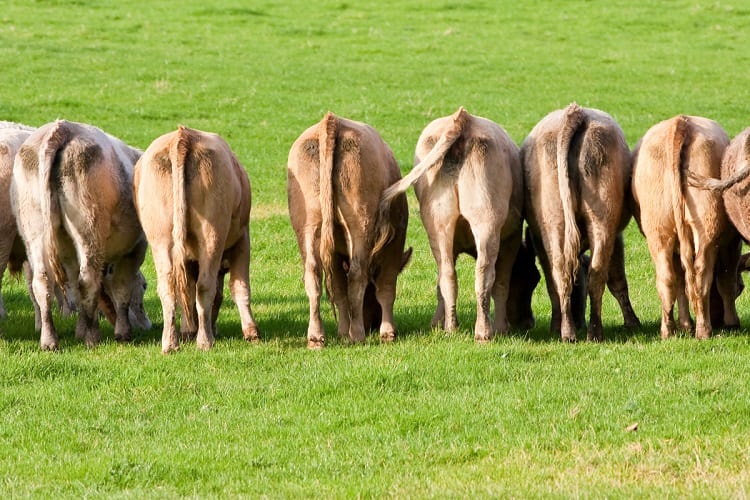
Recent research from Loma Linda University in California agrees that vegans have fewer footprints than meat lovers. The difference is very significant that vegans have 41.7% lesser footprint generation in the atmosphere than individuals who love meat and seafood.
Another study by the Chalmers University of Technology shows that cutting on greenhouse emissions is the surest method of combating climate change.
According to Dr. Fredrik Hedenus of the Chalmers University of Technology, reducing dairy products and meats will significantly control the amount of pollution arising from agricultural activities.
It means agriculture is a significant cause of greenhouse emissions, which resonate with rearing livestock, slaughterhouses, and processing factories.
A report from the United Nations indicates that raising livestock is within the top three most contributors to the environmental problems fueling climate change.
Again, the combustion of the animal waste brings forth nitrous oxide, a more potent gas than CO2 in the greenhouse effect. Research shows that animals inject an approximated 6 million tons of nitrous oxide into the atmosphere yearly. It accounts for over 65% of the nitrous oxide in the atmosphere.
Therefore, the practice of veganism is ideal in reducing the amount of nitrous oxide in the atmosphere.
Eliminating the rearing livestock process will relieve the atmosphere over 65% of nitrous oxide, significantly reducing the greenhouse effect. It’s achievable if humans opt for a plant-based diet to conserve the environment.
Vegan Diet and Reduction of Air Pollution
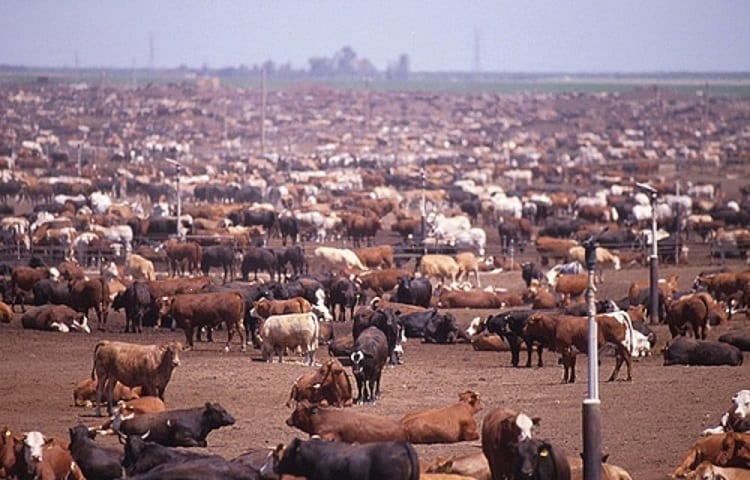
Dairy farms and hogs are excellent sources of animal waste that accumulates and empties into the streams, rivers, and aquifers.
The fecal matter from animals is aerosolized to particulates easily blown by the wind in homes and social institutions. Hence the majority living in such locality complains of air pollution and reduced quality of life.
Again sheep and cows produce about 37% of the total methane available in the atmosphere. In comparison to CO2, methane is 23 times more dangerous to the atmosphere.
The livestock industry is also responsible for 65% of nitrous oxide as seen earlier and 64% of ammonia. Studies show that these gases are overly responsible for human-made induced global warming.
Similarly, Nitrous oxide and ammonia gases are 3 times dangerous to the ozone layer and lead to global warming. These gases come from manure, and thus, reducing livestock rearing is the surest method of overcoming the production of such gases.
So far, cutting carbon dioxide in the atmosphere has not been easy. As seen earlier, the world is still over depending on fossil fuels despite the massive campaigns on the importance of clean energy. Thus, a reduction in other gas production will beef up the atmosphere to sustainable levels.
Animal farming cause humans to invest in heavy duties machines, factories, and power plant to fuel livestock activities.
Many state resources go to agricultural production, where the outcome feeds the livestock and other domestic animals. Thus, if the human race embraced more vegetables and fruits than meat, then little gasses will clog the atmosphere.
Also, livestock farming takes a toll on the transportation system. Farmyard requires a continuous supply of animal feeds, pesticides, and technological products. As a result, a significant amount of global transportation goes to livestock farming.
Thus, the only way forward is to shift from meat and embrace vegetables and fruits.
The whole process will reduce livestock farming that will cut off the number of vehicles, pesticides, and power plants used to support the farm work. Consequently, it’ll be possible to eliminate air pollution and conserve the environment for the sustainability agenda.
Vegan Diet and Stopping Cruelty to Animals
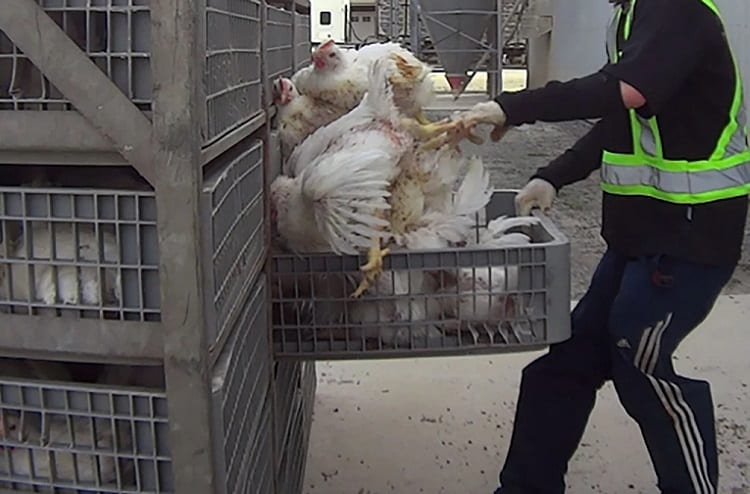
Shifting to a vegan diet can save millions of animals from cruelty. Currently, technology is revolutionizing all aspects of human lives, and livestock rearing is affected.
Scientists are in a battle to unravel more ways of increasing animal’s productivity and altering their genetic makeup to produce vitamins, minerals, and nutrients essential for the human’s body functions.
For instance, Nature Chemical Biology research shows that the zebrafish has a compound ideal for controlling humans’ metabolic functions. A further test of the compound showed substantial achievement in treating type 2 diabetes and offsetting obesity symptoms.
Further, diseases such as diabetes rely on insulin for treatment. Scientists source insulin from cattle and pig’s pancreases.
The problem is not using animals for the research meant to save a life, but the diseases arise after unconsciously consuming meat and processed dairy products.
The processed meat and dairy product is a significant cause of life-threatening conditions, and scientist is subjecting more animals to cruelty to identify the compounds to treat diseases.
Also, animal production affects the atmosphere, and climate change is reducing the yield of plants.
So scientists are subjecting animals to steroids and medications likely to speed up maturity and increase production quality. The move is meant to benefit humans through a long-lasting supply of quality meat and dairy products. But it’s cruelty to the animals.
So as humans increase their urge for meat, animals face cruel treatment to match the demand. The slaughtering and excessive use of assisted technology on animals is intrusive and against their social rights.
Vegan Diet and Overheating the Planet

Ideally, pigs, sheep, cows, and chickens produce waste, which impacts greenhouse gases. This pollution is in exception of animals farting and belching. Thus manure alone is highly poisonous to the atmosphere.
Also, many states lack a proper disposal method of animal’s carcasses, which is a potent source of harmful gases in the atmosphere.
The energy needed in harvesting and preparing fields to grow animal feed adds pressure on the environment. The universe also needs to provide more power to support animal skin processing for making leather shoes and bags. The activities add much pressure to the atmosphere.
In layman, humans are puffing activities on the atmosphere without giving it a chance to breathe.
Daily, the planet must give than take. It’s like being in a relationship where giving is more than taking. So let us save the planet from overheating by refraining from meat and dairy products and embrace a vegan diet.
Bottom Line
A vegan diet is the ultimate solution to conserving the environment. If humans choose a vegan diet over meat and dairy, then energy consumption would reduce significantly. Remember, fossil oil is still ranking as the highest source of energy in the global hemispheres.
A shift to a vegan diet would also see a complete reduction in greenhouse emissions and other gases from telecommunication activities.
Humans would encounter a stable environment where most agricultural activities concentrate on sourcing foods for humans instead of animals. Again, the amount of animal waste would reduce, leading to a reduction of poisonous gases in the atmosphere.
Settling for a vegan diet is the best alternative for those seeking to lead a healthy lifestyle. It’s also a way out for rechanneling the resource to development that seeks to protect indigenous species.
A vegan lifestyle is prone to fewer diseases and complications. Vegans are crusaders for a more sustainable environment by opting for foods that have less carbon footprint in the atmosphere.
Thus, it’s possible to right the wrongs and make the universe more sustainable by ditching that turkey or fish. If humans purpose of protecting the environment, they should start by transitioning to a vegan diet and appreciating nature’s gift.
It’s mine and your responsibility to make the world more hospitable for the future generation by advocating and transitioning to a vegan diet.
Are you ready for a vegan diet?
Share your thoughts and opinions.


